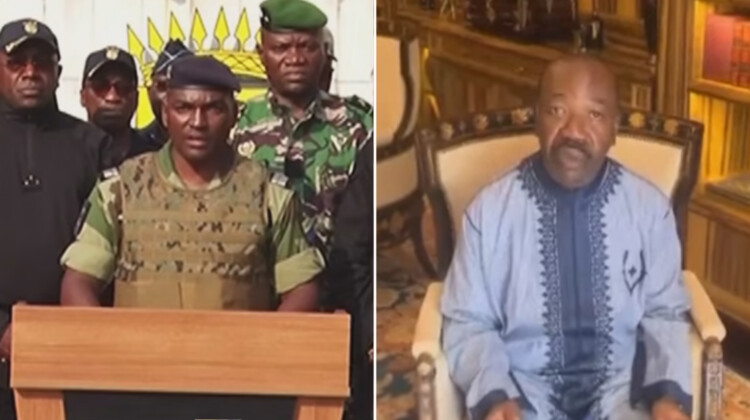In response to the election disputes, the military officers who orchestrated the coup asserted their intention to “defend peace by putting an end to the current regime.” They argued that the election results did not meet the conditions necessary for a transparent, credible, and inclusive ballot, which the Gabonese population had eagerly anticipated.
Following the coup announcement, the streets of Gabon’s capital, Libreville, witnessed a significant outpouring of public support for the military’s actions. Hundreds of people took to the streets to welcome the coup, indicating the extent of public frustration with the decades-long rule of the Bongo family.
Gabon’s Unique Geopolitical Significance
Despite its relatively small population, the Central African nation holds a significant position on the continent due to its status as a major oil producer. Additionally, the country boasts extensive forest coverage, encompassing nearly 90 percent of its territory. Notably, Gabon joined the Commonwealth in June 2022, a unique distinction given that it was not a former British colony.
The coup in Gabon marks the eighth political upheaval in former French colonies across Africa over the past three years. However, it stands apart from the others, which primarily occurred in the Sahel region due to concerns over governance and security.
Thousands of Gabonians took to the streets after the coup, the atmosphere is festive.
Meanwhile, the French mining company Eramet announced the suspension of operations in Gabon. pic.twitter.com/H6fOa4uQhC
— S p r i n t e r F a c t o r y (@Sprinterfactory) August 30, 2023
The French government swiftly condemned the takeover and called for the respect of the election results. Yet, French influence in Africa has diminished in recent years, and this situation may test the extent of its willingness to intervene on behalf of President Bongo.
International Reactions and Gabon’s Uncertain Future
The international community has responded with concern to the coup. Russia, China, and the European Union have all expressed their unease over the developments. The EU’s foreign policy chief, Josep Borrell, highlighted the potential for increased instability in Africa as a consequence of the military takeover.
Following the apparent coup, authorities briefly restored internet access, suspended for security reasons following the election, and maintained the ongoing curfew.
Concerns about the electoral process have long plagued Gabon’s presidential elections, with allegations of ballot irregularities and restricted access to foreign media. Opponents have contested both of President Bongo’s previous election victories.
President Ali Bongo assumed power in 2009 following the death of his father, Omar Bongo. His presidency has faced various challenges, including a stroke in 2018 that incapacitated him for almost a year and a failed coup attempt the following year, which resulted in the imprisonment of mutinying soldiers.
As Gabon confronts this latest political turmoil, the world watches closely, concerned about the potential ramifications not only for this oil-rich nation but also for the broader stability of the African continent.










COMMENTS